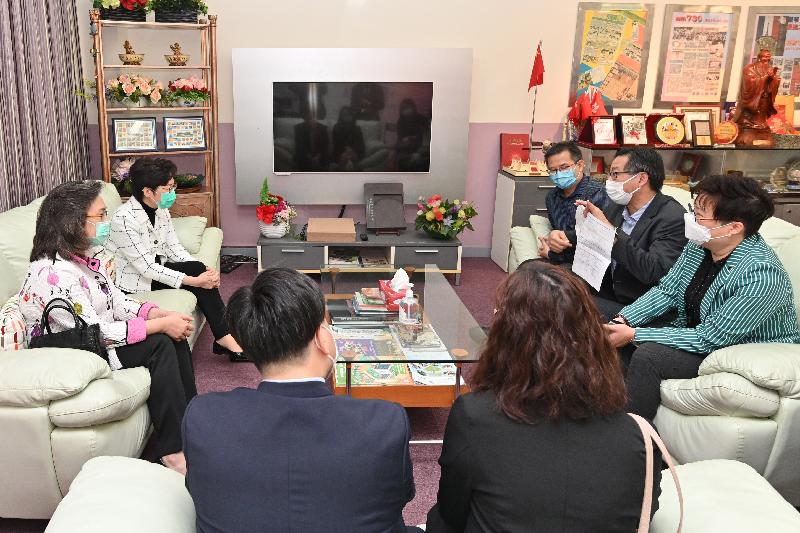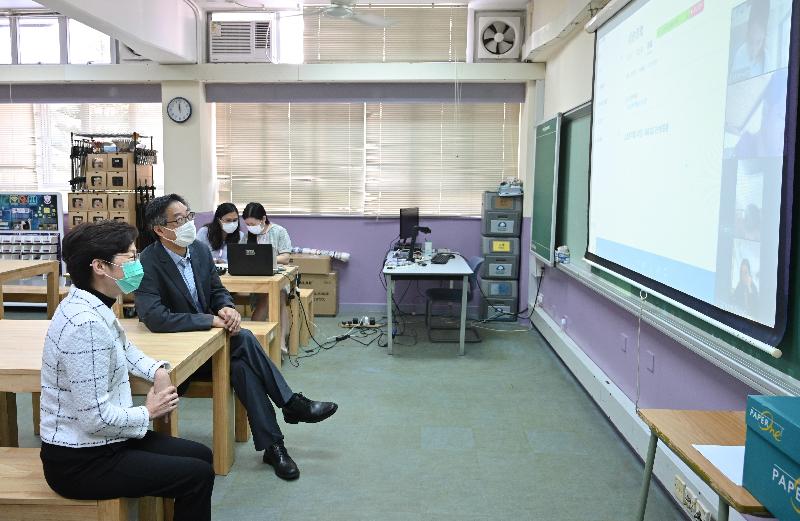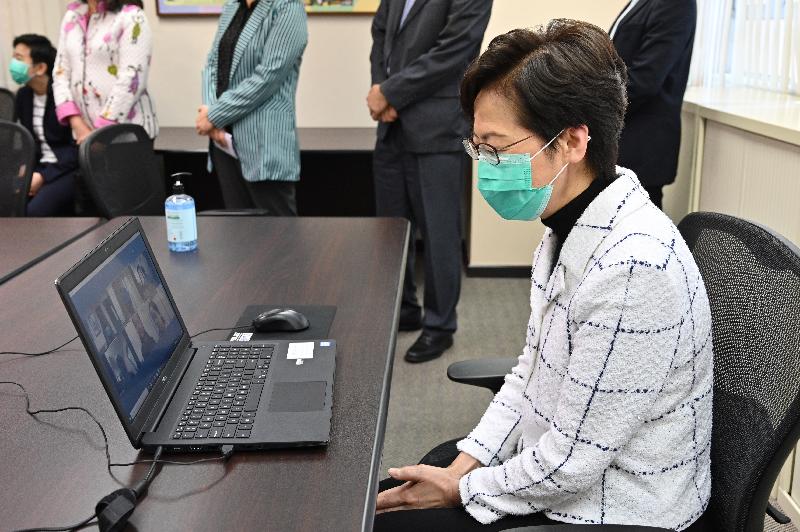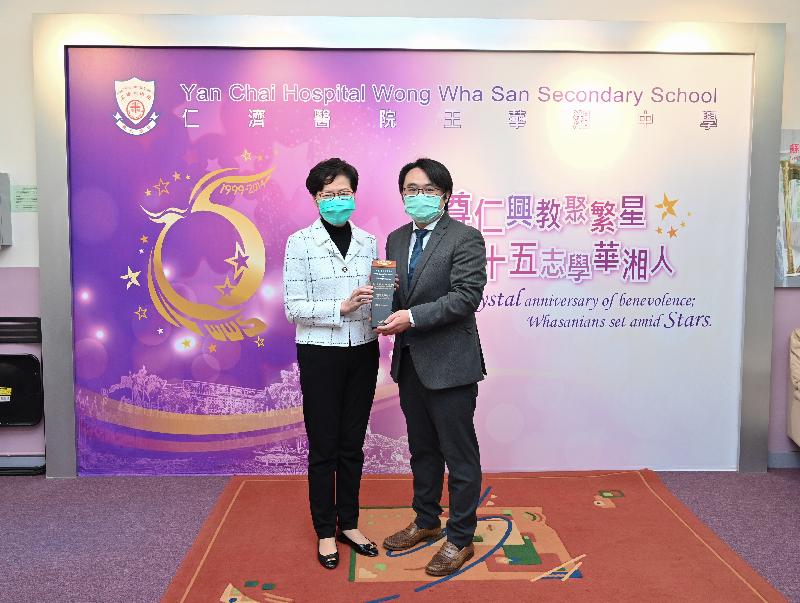Government announces enhancements to anti-epidemic measures in four aspects
With a large number of Hong Kong residents returning from overseas countries in which the COVID-19 epidemic situation has been increasingly severe recently, the number of imported cases in Hong Kong has surged rapidly and some clusters with community-acquired cases have been detected. After consideration by major members of the Steering Committee cum Command Centre chaired by the Chief Executive, Mrs Carrie Lam, enhancements were announced by Mrs Lam yesterday (March 23) for the anti-epidemic measures in four aspects, responding quickly to the latest developments of the disease.
The four aspects of the measures are as follows:
(1) Preventing imported cases and cutting the virus transmission chain
To further prevent imported cases and cut the global and local virus transmission chain as far as possible, the following measures will be implemented with effect from 0.00am on March 25, tentatively for 14 days:
- All non-Hong Kong residents coming from overseas countries and regions by plane will be denied entry to Hong Kong;
- Non-Hong Kong residents coming from the Mainland, Macao and Taiwan will be denied entry to Hong Kong if they have been to any overseas countries and regions in the past 14 days;
- All transit services at Hong Kong International Airport will be suspended; and
- All travellers coming from Macao and Taiwan, including Hong Kong and non-Hong Kong residents, will be subject to a 14-day compulsory quarantine, which is the same as the arrangements for people entering Hong Kong from the Mainland.
Taking into consideration the practical situation, a small number of persons can be exempted from the above immigration restrictions and/or quarantine requirements, including:
- Macao residents who are registered under the Macao scheme under agreement between the Macao Special Administrative Region Government and the Hong Kong Special Administrative Region (HKSAR) Government that they will be immediately taken by coach back to Macao upon entry;
- Crew members of aircraft who need to commute to and from foreign places for performance of necessary duties or crew members of goods vessels;
- Government officials carrying out government duties including personnel of consular posts;
- Spouses and minor children of Hong Kong residents; and
- Personnel engaged in anti-epidemic work endorsed by the HKSAR Government.
The Immigration Department will handle each case in accordance with immigration policy, the actual situation and established procedures.
(2) Early Identification of asymptomatic inbound travellers
The Government will expand its current practice of random virus testing against asymptomatic inbound travellers by mandating that all arriving persons from the United Kingdom, other countries in Europe and the United States must have virus tests with an aim of identifying infected but asymptomatic cases as early as possible. The relevant travellers will be given a specimen container on arrival and will each be required to collect their deep throat saliva sample at a specific time and deliver it to one of the designated clinics as instructed by the Department of Health. If a sample tests positive, the Department of Health will arrange for the person to be admitted to hospital for isolation and treatment immediately. If the test result is negative, the person concerned will still be required to complete the 14-day home quarantine.
(3) Stringent enforcement actions to combat breaches of quarantine orders
The law enforcement agencies will enhance enforcement and strictly combat offenders breaching quarantine orders, including setting up a hotline as soon as possible for members of the public to report such cases to enhance the effectiveness of law enforcement. On March 22 and yesterday, the Police intercepted several suspected offenders. The Police and the Department of Health immediately started investigation and are proactively collecting more evidence for the Department of Justice to consider prosecution. All the people concerned were subsequently sent to quarantine centres. In addition, the Police have placed people who have been found to have left their dwelling places without permission on the wanted list.
The Government once again reminds all persons under compulsory quarantine to strictly comply with the quarantine order and not to defy the law.
(4) Reducing social contacts and gatherings further
To further reduce social contacts and gatherings, the Government will invoke the Prevention and Control of Disease Ordinance (Cap. 599) to introduce legislation to temporarily prohibit the sale and supply of alcoholic drinks by about 8 600 restaurants, bars and clubs with liquor licences in Hong Kong. Details of the relevant legislation will be announced later.
The Government will also discuss with members of the restaurant industry on ways to further reduce gatherings (such as wedding banquets and other celebration activities) and how restaurants can reduce customers' risk of infection during meals. If the effect of voluntary actions taken by the industry is not good, the Government will consider introducing regulations through the above-mentioned legislation.
In addition, the Government will request the clubs on private recreational leases to immediately close all of their recreational and sports facilities, changing rooms and play rooms for young children in the clubs. The Government also appeals to other private clubs and gymnasia to adopt the same measure to reduce the risk of the spread of the virus.
Mrs Lam said, "Since the situation continues to evolve drastically, the Government must make prompt responses to roll out more measures, and it will continue to do so down the road.
"With the concerted efforts of Hong Kong people to maintain social distancing as much as possible over the past two months, the anti-epidemic work has yielded certain positive results. The number of confirmed cases, nonetheless, has increased significantly with the return of a large number of Hong Kong residents from overseas, jeopardising the situation. I urge every member of the public to put up with the inconvenience in their daily lives, and in particular call on those returnees from overseas who are under compulsory quarantine to strictly observe the quarantine order. I have no doubt that as long as we stay united to work together, we can definitely win the fight against the epidemic."




